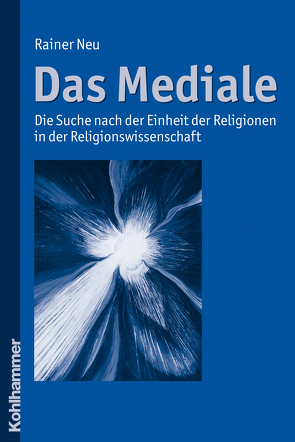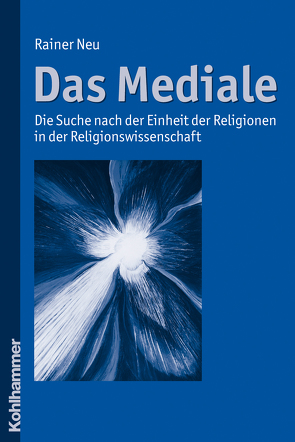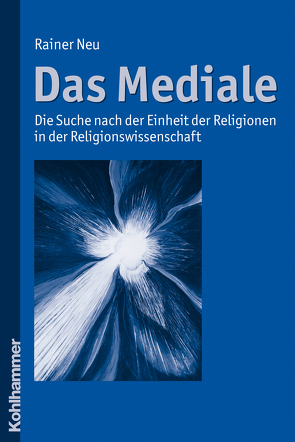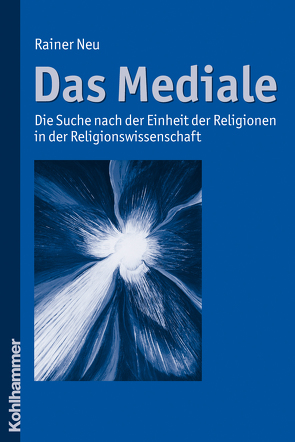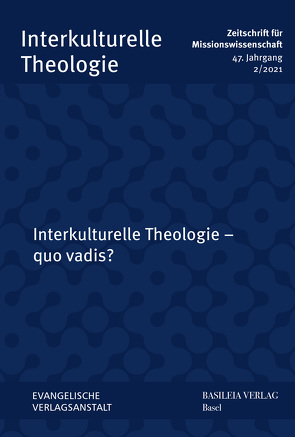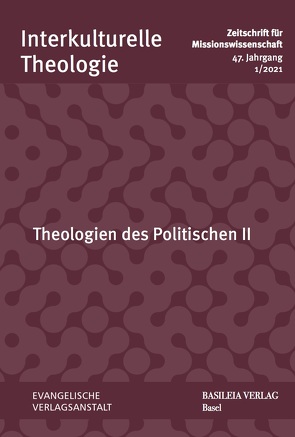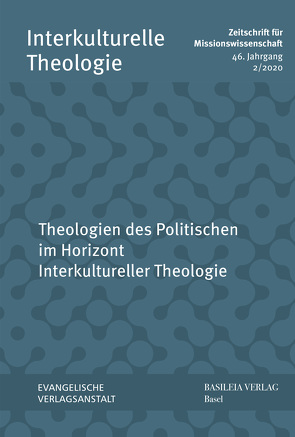Myths and fairy tales, religious biographies and legends, shamanic voyages beyond and priestly rituals, the architecture of religious buildings, the philosophy of religions of romanticists, the sensitive analysis of phenomenologist?s of religion and the critical analysis of sociologists reaching from functionalism to systemic theory all refer to something common in religions. In the variety of manifestations a general structure can be recognised: the medial. The medial proves to be the object of religious studies. It represents the unity in religion whilst acknowledging the differences and distinctive features.
The religious manifestations come from a sphere of original unity (the holy), diverge into two poles (the holy - the profane) and strive for renewed integration (the medial). Thus religion can be analysed as a process of exchange between the poles holy and profane. Religious experience is possible wherever these spheres permeate.
Aktualisiert: 2023-06-30
> findR *
Myths and fairy tales, religious biographies and legends, shamanic voyages beyond and priestly rituals, the architecture of religious buildings, the philosophy of religions of romanticists, the sensitive analysis of phenomenologist?s of religion and the critical analysis of sociologists reaching from functionalism to systemic theory all refer to something common in religions. In the variety of manifestations a general structure can be recognised: the medial. The medial proves to be the object of religious studies. It represents the unity in religion whilst acknowledging the differences and distinctive features.
The religious manifestations come from a sphere of original unity (the holy), diverge into two poles (the holy - the profane) and strive for renewed integration (the medial). Thus religion can be analysed as a process of exchange between the poles holy and profane. Religious experience is possible wherever these spheres permeate.
Aktualisiert: 2023-06-30
> findR *
Myths and fairy tales, religious biographies and legends, shamanic voyages beyond and priestly rituals, the architecture of religious buildings, the philosophy of religions of romanticists, the sensitive analysis of phenomenologist?s of religion and the critical analysis of sociologists reaching from functionalism to systemic theory all refer to something common in religions. In the variety of manifestations a general structure can be recognised: the medial. The medial proves to be the object of religious studies. It represents the unity in religion whilst acknowledging the differences and distinctive features.
The religious manifestations come from a sphere of original unity (the holy), diverge into two poles (the holy - the profane) and strive for renewed integration (the medial). Thus religion can be analysed as a process of exchange between the poles holy and profane. Religious experience is possible wherever these spheres permeate.
Aktualisiert: 2023-06-30
> findR *
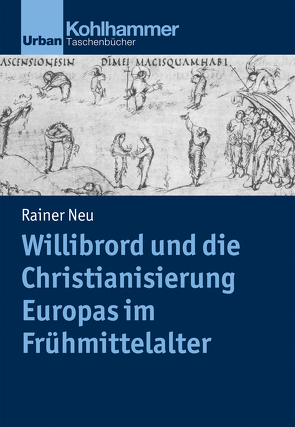
The transition from antiquity to the Middle Ages is still an enigmatic period in history. Too few documents from the time have survived. It was during this period, however, that the foundations were laid for the cultural and political entity we now call Europe. The transmitters of cultural values during those centuries accomplished a double feat: they saved the heritage of Greco-Roman antiquity from its final disappearance and, along with the new elements of the Judeo-Christian religion, passed it on to the fragmented and ?barbaric= peoples of the Celts and Germanic tribes. This cultural transfer was possible because the heritage of antiquity had survived on the extreme edge of Europe, of all places, in a region that had never been occupied by the Romans: in Ireland. As a result of the Christianization of Ireland in the fourth century, Greco-Roman culture also made its way from the Mediterranean via Gaul to the ?Emerald Isle= and took root there in the monasteries, before the Roman Empire collapsed into chaos. From the end of the sixth century, Irish monks, later followed by Anglo-Saxon ones, also migrated to the continent and spread the Christian faith and ancient learning among the newly gathering tribes of Gaul and Germania. Something unique and novel emerged out of the ruins of the age of migration: Europe. One of the men who stood out from the darkness of these centuries was Willibrord, who later became known as the ?Apostle of the Netherlands=. Only a few contemporary documents about his life and work have survived, and it is scarcely possible to obtain a well-rounded picture of his biography. However, a few highlights can provide glimpses into the enigmatic period in which the last of the Germanic tribes converted to Christianity, the advance of Islam ended and important foundations for Europe were laid. On the basis of detailed source research, Rainer Neu traces the life of Willibrord and his significance for the development of the Christian West.
Aktualisiert: 2023-06-30
> findR *
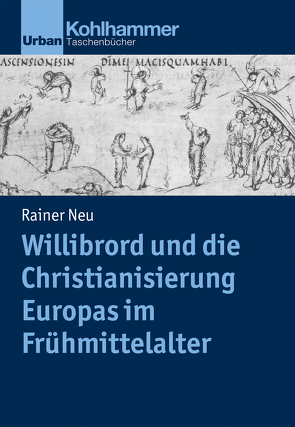
The transition from antiquity to the Middle Ages is still an enigmatic period in history. Too few documents from the time have survived. It was during this period, however, that the foundations were laid for the cultural and political entity we now call Europe. The transmitters of cultural values during those centuries accomplished a double feat: they saved the heritage of Greco-Roman antiquity from its final disappearance and, along with the new elements of the Judeo-Christian religion, passed it on to the fragmented and ?barbaric= peoples of the Celts and Germanic tribes. This cultural transfer was possible because the heritage of antiquity had survived on the extreme edge of Europe, of all places, in a region that had never been occupied by the Romans: in Ireland. As a result of the Christianization of Ireland in the fourth century, Greco-Roman culture also made its way from the Mediterranean via Gaul to the ?Emerald Isle= and took root there in the monasteries, before the Roman Empire collapsed into chaos. From the end of the sixth century, Irish monks, later followed by Anglo-Saxon ones, also migrated to the continent and spread the Christian faith and ancient learning among the newly gathering tribes of Gaul and Germania. Something unique and novel emerged out of the ruins of the age of migration: Europe. One of the men who stood out from the darkness of these centuries was Willibrord, who later became known as the ?Apostle of the Netherlands=. Only a few contemporary documents about his life and work have survived, and it is scarcely possible to obtain a well-rounded picture of his biography. However, a few highlights can provide glimpses into the enigmatic period in which the last of the Germanic tribes converted to Christianity, the advance of Islam ended and important foundations for Europe were laid. On the basis of detailed source research, Rainer Neu traces the life of Willibrord and his significance for the development of the Christian West.
Aktualisiert: 2023-06-30
> findR *
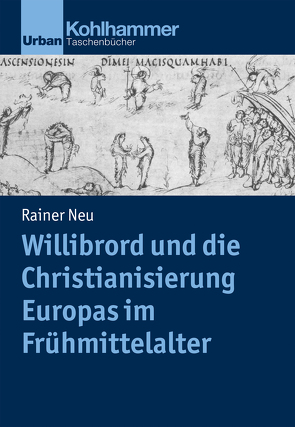
The transition from antiquity to the Middle Ages is still an enigmatic period in history. Too few documents from the time have survived. It was during this period, however, that the foundations were laid for the cultural and political entity we now call Europe. The transmitters of cultural values during those centuries accomplished a double feat: they saved the heritage of Greco-Roman antiquity from its final disappearance and, along with the new elements of the Judeo-Christian religion, passed it on to the fragmented and ?barbaric= peoples of the Celts and Germanic tribes. This cultural transfer was possible because the heritage of antiquity had survived on the extreme edge of Europe, of all places, in a region that had never been occupied by the Romans: in Ireland. As a result of the Christianization of Ireland in the fourth century, Greco-Roman culture also made its way from the Mediterranean via Gaul to the ?Emerald Isle= and took root there in the monasteries, before the Roman Empire collapsed into chaos. From the end of the sixth century, Irish monks, later followed by Anglo-Saxon ones, also migrated to the continent and spread the Christian faith and ancient learning among the newly gathering tribes of Gaul and Germania. Something unique and novel emerged out of the ruins of the age of migration: Europe. One of the men who stood out from the darkness of these centuries was Willibrord, who later became known as the ?Apostle of the Netherlands=. Only a few contemporary documents about his life and work have survived, and it is scarcely possible to obtain a well-rounded picture of his biography. However, a few highlights can provide glimpses into the enigmatic period in which the last of the Germanic tribes converted to Christianity, the advance of Islam ended and important foundations for Europe were laid. On the basis of detailed source research, Rainer Neu traces the life of Willibrord and his significance for the development of the Christian West.
Aktualisiert: 2023-06-30
> findR *
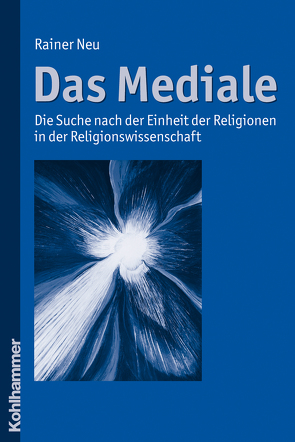
Mythen und Märchen, religiöse Biographien und Sagen, schamanische Jenseitsreisen und priesterliche Rituale, die Architektur von Sakralbauten, die Religionsphilosophie der Romantiker, die einfühlsamen Untersuchungen der Religionsphänomenologen und die kritischen Analysen der Religionssoziologen vom Funktionalismus bis zur hochabstrakten Systemtheorie verweisen auf ein Gemeinsames in den Religionen. In der Vielfalt ihrer Erscheinungsformen lassen sie ein allgemeines Strukturmerkmal erkennen: das Mediale. Das Mediale erweist sich als der eigentliche Gegenstand der Religionswissenschaft. Es steht für die Einheit in den Religionen bei gleichzeitiger Anerkennung ihrer Unterschiede und Besonderheiten. Die religiösen Erscheinungsformen entstammen einer Sphäre ursprünglicher Einheit (dem Heiligen), fallen in divergierende Pole auseinander (das Heilige - das Profane) und streben nach erneuter Integration (dem Medialen). So lässt sich Religion als Prozess des Austausches zwischen den Polen heilig - profan analysieren. Religiöse Erfahrung ist möglich, wo sich diese Sphären durchdringen.
Aktualisiert: 2023-06-06
> findR *
Myths and fairy tales, religious biographies and legends, shamanic voyages beyond and priestly rituals, the architecture of religious buildings, the philosophy of religions of romanticists, the sensitive analysis of phenomenologist?s of religion and the critical analysis of sociologists reaching from functionalism to systemic theory all refer to something common in religions. In the variety of manifestations a general structure can be recognised: the medial. The medial proves to be the object of religious studies. It represents the unity in religion whilst acknowledging the differences and distinctive features.
The religious manifestations come from a sphere of original unity (the holy), diverge into two poles (the holy - the profane) and strive for renewed integration (the medial). Thus religion can be analysed as a process of exchange between the poles holy and profane. Religious experience is possible wherever these spheres permeate.
Aktualisiert: 2023-05-25
> findR *
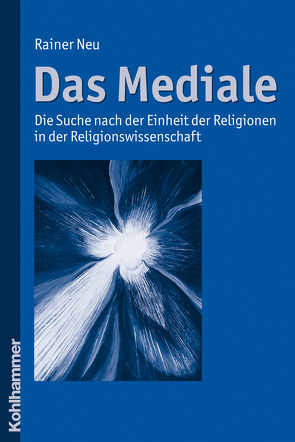
Mythen und Märchen, religiöse Biographien und Sagen, schamanische Jenseitsreisen und priesterliche Rituale, die Architektur von Sakralbauten, die Religionsphilosophie der Romantiker, die einfühlsamen Untersuchungen der Religionsphänomenologen und die kritischen Analysen der Religionssoziologen vom Funktionalismus bis zur hochabstrakten Systemtheorie verweisen auf ein Gemeinsames in den Religionen. In der Vielfalt ihrer Erscheinungsformen lassen sie ein allgemeines Strukturmerkmal erkennen: das Mediale. Das Mediale erweist sich als der eigentliche Gegenstand der Religionswissenschaft. Es steht für die Einheit in den Religionen bei gleichzeitiger Anerkennung ihrer Unterschiede und Besonderheiten. Die religiösen Erscheinungsformen entstammen einer Sphäre ursprünglicher Einheit (dem Heiligen), fallen in divergierende Pole auseinander (das Heilige - das Profane) und streben nach erneuter Integration (dem Medialen). So lässt sich Religion als Prozess des Austausches zwischen den Polen heilig - profan analysieren. Religiöse Erfahrung ist möglich, wo sich diese Sphären durchdringen.
Aktualisiert: 2023-05-11
> findR *
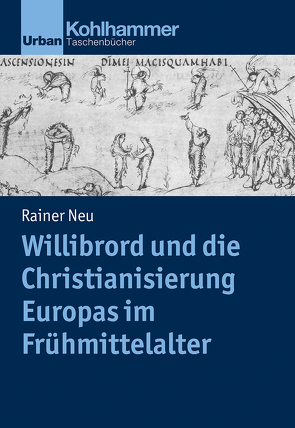
The transition from antiquity to the Middle Ages is still an enigmatic period in history. Too few documents from the time have survived. It was during this period, however, that the foundations were laid for the cultural and political entity we now call Europe. The transmitters of cultural values during those centuries accomplished a double feat: they saved the heritage of Greco-Roman antiquity from its final disappearance and, along with the new elements of the Judeo-Christian religion, passed it on to the fragmented and ?barbaric= peoples of the Celts and Germanic tribes. This cultural transfer was possible because the heritage of antiquity had survived on the extreme edge of Europe, of all places, in a region that had never been occupied by the Romans: in Ireland. As a result of the Christianization of Ireland in the fourth century, Greco-Roman culture also made its way from the Mediterranean via Gaul to the ?Emerald Isle= and took root there in the monasteries, before the Roman Empire collapsed into chaos. From the end of the sixth century, Irish monks, later followed by Anglo-Saxon ones, also migrated to the continent and spread the Christian faith and ancient learning among the newly gathering tribes of Gaul and Germania. Something unique and novel emerged out of the ruins of the age of migration: Europe. One of the men who stood out from the darkness of these centuries was Willibrord, who later became known as the ?Apostle of the Netherlands=. Only a few contemporary documents about his life and work have survived, and it is scarcely possible to obtain a well-rounded picture of his biography. However, a few highlights can provide glimpses into the enigmatic period in which the last of the Germanic tribes converted to Christianity, the advance of Islam ended and important foundations for Europe were laid. On the basis of detailed source research, Rainer Neu traces the life of Willibrord and his significance for the development of the Christian West.
Aktualisiert: 2023-05-02
> findR *
Die Interkulturelle Theologie (ZMiss) reflektiert die theologischen Grundlagen der Mission (Missionstheologie) sowie Erfahrungen und Probleme der weltweiten missionarischen Praxis. Sie bringt Beiträge und Analysen zu missionsgeschichtlichen Themen, widmet sich missionswissenschaftlich relevanten ethnologischen, religions- und kulturwissenschaftlichen Forschungsergebnissen und beteiligt sich an interreligiösen und interkulturellen Dialogen. Im Vordergrund steht das Bemühen um Respekt und ein besseres Verständnis anderer Glaubensweisen, die Unterstützung von auf den jeweiligen Kontext bezogenen Theologien und das Gespräch mit überseeischen Theologinnen und Theologen
mit Beiträgen u.a. von Claudia Jahnel, Klaus Hock, Andreas Heuser, Chai Soo-il, Fernando Enns, Ulrich Dehn..
Aktualisiert: 2022-06-15
> findR *
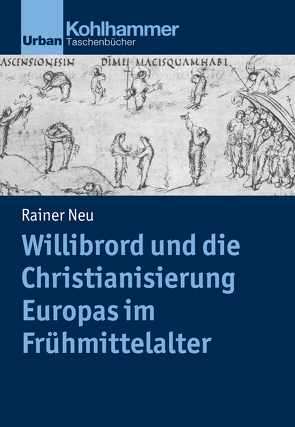
The transition from antiquity to the Middle Ages is still an enigmatic period in history. Too few documents from the time have survived. It was during this period, however, that the foundations were laid for the cultural and political entity we now call Europe. The transmitters of cultural values during those centuries accomplished a double feat: they saved the heritage of Greco-Roman antiquity from its final disappearance and, along with the new elements of the Judeo-Christian religion, passed it on to the fragmented and ?barbaric= peoples of the Celts and Germanic tribes. This cultural transfer was possible because the heritage of antiquity had survived on the extreme edge of Europe, of all places, in a region that had never been occupied by the Romans: in Ireland. As a result of the Christianization of Ireland in the fourth century, Greco-Roman culture also made its way from the Mediterranean via Gaul to the ?Emerald Isle= and took root there in the monasteries, before the Roman Empire collapsed into chaos. From the end of the sixth century, Irish monks, later followed by Anglo-Saxon ones, also migrated to the continent and spread the Christian faith and ancient learning among the newly gathering tribes of Gaul and Germania. Something unique and novel emerged out of the ruins of the age of migration: Europe. One of the men who stood out from the darkness of these centuries was Willibrord, who later became known as the ?Apostle of the Netherlands=. Only a few contemporary documents about his life and work have survived, and it is scarcely possible to obtain a well-rounded picture of his biography. However, a few highlights can provide glimpses into the enigmatic period in which the last of the Germanic tribes converted to Christianity, the advance of Islam ended and important foundations for Europe were laid. On the basis of detailed source research, Rainer Neu traces the life of Willibrord and his significance for the development of the Christian West.
Aktualisiert: 2023-04-04
> findR *
Die Interkulturelle Theologie (ZMiss) reflektiert die theologischen Grundlagen der Mission (Missionstheologie) sowie Erfahrungen und Probleme der weltweiten missionarischen Praxis. Sie bringt Beiträge und Analysen zu missionsgeschichtlichen Themen, widmet sich missionswissenschaftlich relevanten ethnologischen, religions- und kulturwissenschaftlichen Forschungsergebnissen und beteiligt sich an interreligiösen und interkulturellen Dialogen. Im Vordergrund steht das Bemühen um Respekt und ein besseres Verständnis anderer Glaubensweisen, die Unterstützung von auf den jeweiligen Kontext bezogenen Theologien und das Gespräch mit überseeischen Theologinnen und Theologen.
Aktualisiert: 2022-06-17
> findR *
Die Interkulturelle Theologie (ZMiss) reflektiert die theologischen Grundlagen der Mission (Missionstheologie) sowie Erfahrungen und Probleme der weltweiten missionarischen Praxis. Sie bringt Beiträge und Analysen zu missionsgeschichtlichen Themen, widmet sich missionswissenschaftlich relevanten ethnologischen, religions- und kulturwissenschaftlichen Forschungsergebnissen und beteiligt sich an interreligiösen und interkulturellen Dialogen. Im Vordergrund steht das Bemühen um Respekt und ein besseres Verständnis anderer Glaubensweisen, die Unterstützung von auf den jeweiligen Kontext bezogenen Theologien und das Gespräch mit überseeischen Theologinnen und Theologen.
Aktualisiert: 2022-06-13
> findR *
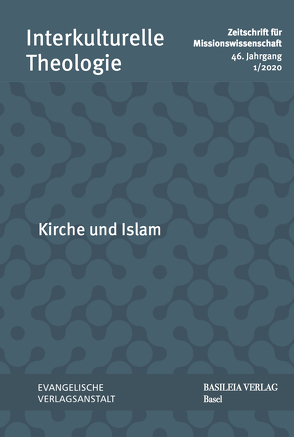
Die »Interkulturelle Theologie. Zeitschrift für Missionswissenschaft« erscheint in Fortführung des Evangelischen Missions-Magazins (seit 1816) und der Evangelischen Missions-Zeitschrift. Sie reflektiert die theologischen Grundlagen der Mission (Missionstheologie) sowie Erfahrungen und Probleme der weltweiten missionarischen Praxis. Sie bringt Beiträge und Analysen zu missionsgeschichtlichen Themen, widmet sich missionswissenschaftlich relevanten ethnologischen, religions- und kulturwissenschaftlichen Forschungsergebnissen und beteiligt sich an interreligiösen und interkulturellen Dialogen. Im Vordergrund steht das Bemühen um Respekt und ein besseres Verständnis anderer Glaubensweisen, die Unterstützung von auf den jeweiligen Kontext bezogenen Theologien und das Gespräch mit überseeischen Theologinnen und Theologen.
Die »Interkulturelle Theologie« informiert zudem regelmäßig in verschiedenen Rubriken über aktuelle Entwicklungen, Ereignisse und Neuerscheinungen.
Aktualisiert: 2022-06-13
> findR *
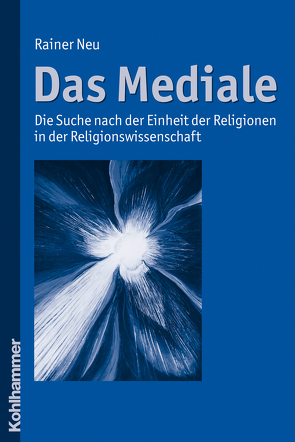
Mythen und Märchen, religiöse Biographien und Sagen, schamanische Jenseitsreisen und priesterliche Rituale, die Architektur von Sakralbauten, die Religionsphilosophie der Romantiker, die einfühlsamen Untersuchungen der Religionsphänomenologen und die kritischen Analysen der Religionssoziologen vom Funktionalismus bis zur hochabstrakten Systemtheorie verweisen auf ein Gemeinsames in den Religionen. In der Vielfalt ihrer Erscheinungsformen lassen sie ein allgemeines Strukturmerkmal erkennen: das Mediale. Das Mediale erweist sich als der eigentliche Gegenstand der Religionswissenschaft. Es steht für die Einheit in den Religionen bei gleichzeitiger Anerkennung ihrer Unterschiede und Besonderheiten. Die religiösen Erscheinungsformen entstammen einer Sphäre ursprünglicher Einheit (dem Heiligen), fallen in divergierende Pole auseinander (das Heilige - das Profane) und streben nach erneuter Integration (dem Medialen). So lässt sich Religion als Prozess des Austausches zwischen den Polen heilig - profan analysieren. Religiöse Erfahrung ist möglich, wo sich diese Sphären durchdringen.
Aktualisiert: 2023-02-14
> findR *
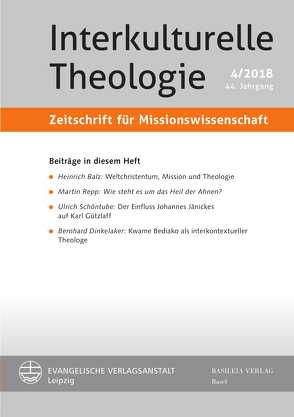
Die »Interkulturelle Theologie. Zeitschrift für Missionswissenschaft« erscheint in Fortführung des Evangelischen Missions-Magazins (seit 1816) und der Evangelischen Missions-Zeitschrift. Sie reflektiert die theologischen Grundlagen der Mission (Missionstheologie) sowie Erfahrungen und Probleme der weltweiten missionarischen Praxis. Sie bringt Beiträge und Analysen zu missionsgeschichtlichen Themen, widmet sich missionswissenschaftlich relevanten ethnologischen, religions- und kulturwissenschaftlichen Forschungsergebnissen und beteiligt sich an interreligiösen und interkulturellen Dialogen. Im Vordergrund steht das Bemühen um Respekt und ein besseres Verständnis anderer Glaubensweisen, die Unterstützung von auf den jeweiligen Kontext bezogenen Theologien und das Gespräch mit überseeischen Theologinnen und Theologen.
Die »Interkulturelle Theologie« informiert zudem regelmäßig in verschiedenen Rubriken über aktuelle Entwicklungen, Ereignisse und Neuerscheinungen.
Schriftleitung: Hauptschriftleiter: Ulrich Dehn (Hauptschriftleiter), Klaus Hock, Katrin Kusmierz, Heike Walz
Aktualisiert: 2021-06-07
> findR *
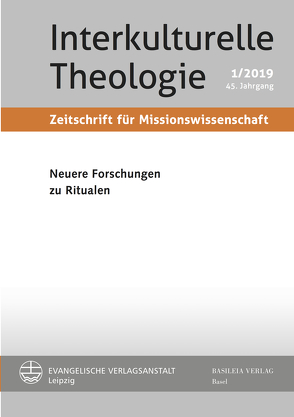
Die »Interkulturelle Theologie. Zeitschrift für Missionswissenschaft« erscheint in Fortführung des Evangelischen Missions-Magazins (seit 1816) und der Evangelischen Missions-Zeitschrift. Sie reflektiert die theologischen Grundlagen der Mission (Missionstheologie) sowie Erfahrungen und Probleme der weltweiten missionarischen Praxis. Sie bringt Beiträge und Analysen zu missionsgeschichtlichen Themen, widmet sich missionswissenschaftlich relevanten ethnologischen, religions- und kulturwissenschaftlichen Forschungsergebnissen und beteiligt sich an interreligiösen und interkulturellen Dialogen. Im Vordergrund steht das Bemühen um Respekt und ein besseres Verständnis anderer Glaubensweisen, die Unterstützung von auf den jeweiligen Kontext bezogenen Theologien und das Gespräch mit überseeischen Theologinnen und Theologen.
Die »Interkulturelle Theologie« informiert zudem regelmäßig in verschiedenen Rubriken über aktuelle Entwicklungen, Ereignisse und Neuerscheinungen.
Aktualisiert: 2021-06-07
> findR *
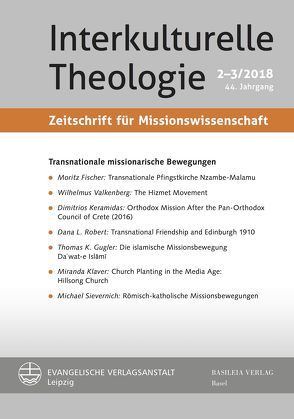
Die »Interkulturelle Theologie. Zeitschrift für Missionswissenschaft« erscheint in Fortführung des Evangelischen Missions-Magazins (seit 1816) und der Evangelischen Missions-Zeitschrift. Sie reflektiert die theologischen Grundlagen der Mission (Missionstheologie) sowie Erfahrungen und Probleme der weltweiten missionarischen Praxis. Sie bringt Beiträge und Analysen zu missionsgeschichtlichen Themen, widmet sich missionswissenschaftlich relevanten ethnologischen, religions- und kulturwissenschaftlichen Forschungsergebnissen und beteiligt sich an interreligiösen und interkulturellen Dialogen. Im Vordergrund steht das Bemühen um Respekt und ein besseres Verständnis anderer Glaubensweisen, die Unterstützung von auf den jeweiligen Kontext bezogenen Theologien und das Gespräch mit überseeischen Theologinnen und Theologen.
Die »Interkulturelle Theologie« informiert zudem regelmäßig in verschiedenen Rubriken über aktuelle Entwicklungen, Ereignisse und Neuerscheinungen.
Schriftleitung: Hauptschriftleiter: Ulrich Dehn (Hauptschriftleiter), Klaus Hock, Katrin Kusmierz, Heike Walz
Aktualisiert: 2021-06-07
> findR *
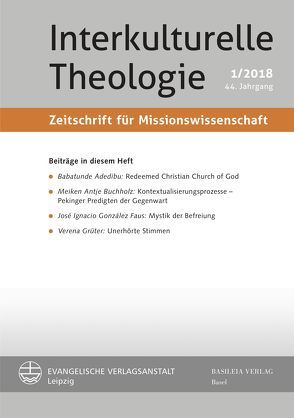
Die »Interkulturelle Theologie. Zeitschrift für Missionswissenschaft« erscheint in Fortführung des Evangelischen Missions-Magazins (seit 1816) und der Evangelischen Missions-Zeitschrift. Sie reflektiert die theologischen Grundlagen der Mission (Missionstheologie) sowie Erfahrungen und Probleme der weltweiten missionarischen Praxis. Sie bringt Beiträge und Analysen zu missionsgeschichtlichen Themen, widmet sich missionswissenschaftlich relevanten ethnologischen, religions- und kulturwissenschaftlichen Forschungsergebnissen und beteiligt sich an interreligiösen und interkulturellen Dialogen. Im Vordergrund steht das Bemühen um Respekt und ein besseres Verständnis anderer Glaubensweisen, die Unterstützung von auf den jeweiligen Kontext bezogenen Theologien und das Gespräch mit überseeischen Theologinnen und Theologen.
Die »Interkulturelle Theologie« informiert zudem regelmäßig in verschiedenen Rubriken über aktuelle Entwicklungen, Ereignisse und Neuerscheinungen.
Schriftleitung: Hauptschriftleiter: Ulrich Dehn (Hauptschriftleiter), Moritz Fischer, Klaus Hock, Katrin Kusmierz, Benedict Schubert
Aktualisiert: 2021-06-07
> findR *
MEHR ANZEIGEN
Bücher von Neu, Rainer
Sie suchen ein Buch oder Publikation vonNeu, Rainer ? Bei Buch findr finden Sie alle Bücher Neu, Rainer.
Entdecken Sie neue Bücher oder Klassiker für Sie selbst oder zum Verschenken. Buch findr hat zahlreiche Bücher
von Neu, Rainer im Sortiment. Nehmen Sie sich Zeit zum Stöbern und finden Sie das passende Buch oder die
Publiketion für Ihr Lesevergnügen oder Ihr Interessensgebiet. Stöbern Sie durch unser Angebot und finden Sie aus
unserer großen Auswahl das Buch, das Ihnen zusagt. Bei Buch findr finden Sie Romane, Ratgeber, wissenschaftliche und
populärwissenschaftliche Bücher uvm. Bestellen Sie Ihr Buch zu Ihrem Thema einfach online und lassen Sie es sich
bequem nach Hause schicken. Wir wünschen Ihnen schöne und entspannte Lesemomente mit Ihrem Buch
von Neu, Rainer .
Neu, Rainer - Große Auswahl an Publikationen bei Buch findr
Bei uns finden Sie Bücher aller beliebter Autoren, Neuerscheinungen, Bestseller genauso wie alte Schätze. Bücher
von Neu, Rainer die Ihre Fantasie anregen und Bücher, die Sie weiterbilden und Ihnen wissenschaftliche Fakten
vermitteln. Ganz nach Ihrem Geschmack ist das passende Buch für Sie dabei. Finden Sie eine große Auswahl Bücher
verschiedenster Genres, Verlage, Schlagworte Genre bei Buchfindr:
Unser Repertoire umfasst Bücher von
- Neub, Christoph
- Neub, Michael
- Neubach, Constanze
- Neubach, Helmut
- Neubach, Manuel
- Neubacher, Alexander
- Neubacher, Frank
- Neubacher, Franz
- Neubacher, Helmar
- Neubacher, Jan
Sie haben viele Möglichkeiten bei Buch findr die passenden Bücher für Ihr Lesevergnügen zu entdecken. Nutzen Sie
unsere Suchfunktionen, um zu stöbern und für Sie interessante Bücher in den unterschiedlichen Genres und Kategorien
zu finden. Neben Büchern von Neu, Rainer und Büchern aus verschiedenen Kategorien finden Sie schnell und
einfach auch eine Auflistung thematisch passender Publikationen. Probieren Sie es aus, legen Sie jetzt los! Ihrem
Lesevergnügen steht nichts im Wege. Nutzen Sie die Vorteile Ihre Bücher online zu kaufen und bekommen Sie die
bestellten Bücher schnell und bequem zugestellt. Nehmen Sie sich die Zeit, online die Bücher Ihrer Wahl anzulesen,
Buchempfehlungen und Rezensionen zu studieren, Informationen zu Autoren zu lesen. Viel Spaß beim Lesen wünscht Ihnen
das Team von Buchfindr.
